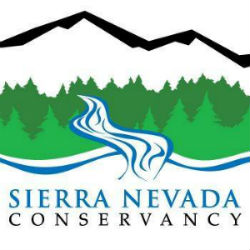Auburn, CA…The Sierra Nevada Conservancy (SNC) Governing Board will hold its quarterly meeting in Auburn in Placer County. On December 7, SNC will host a field tour to explore issues and activities related to forest and watershed health in the Central Subregion. The tour will stop along the rim of the American River Canyon near Auburn to view SNC-funded forest thinning projects designed to reduce fire threat to the community, and protect water supply and recreational resources.
The tour will continue to the Rio Bravo biomass plant in Rocklin. The field tour is scheduled to start at 1:00 p.m. from the main parking lot of the Sierra Nevada Conservancy Headquarters Office located at 11521 Blocker Drive, Suite 205, Auburn, CA 95603. Following the tour, a reception will be held at the General Gomez ARTS & Events Center located at 808 Lincoln Way, Auburn, CA 95603, from 5:30 to 7:00 p.m. Retiring SNC Board Chair BJ Kirwan will be honored at the reception for her unwavering support of the Sierra Nevada Region and the Sierra Nevada Conservancy.
The board meeting will begin at 9:00 a.m. on December 8 at the General Gomez ARTS & Events Center. The board will consider awarding funding for projects that restore forest and watershed health under the SNC 2015-16 Proposition 1 Grant Program. The board will also receive an update on the progress of the Sierra Nevada Watershed Improvement Program and will consider recommendations on the expenditure of the SNC’s remaining Proposition 84 funds.
The public is invited to attend all SNC events; however, lunch and transportation are not provided. Complete information on the meeting agenda, staff reports, and field trip is available online at www.sierranevada.ca.gov.
Created in 2004, the Sierra Nevada Conservancy (SNC) is a state agency whose mission is to improve the environmental, economic, and social well-being of the Sierra Nevada Region. The SNC has awarded over $50 million in grants for projects that protect and enhance the health of California’s primary watersheds by improving forest health, remediating mercury contamination from abandoned mines, protecting critical natural resources, and reducing the risk of catastrophic wildfire. Funding for these projects came from Proposition 84 passed by voters in 2006 and Proposition 1 passed by voters in 2014.



